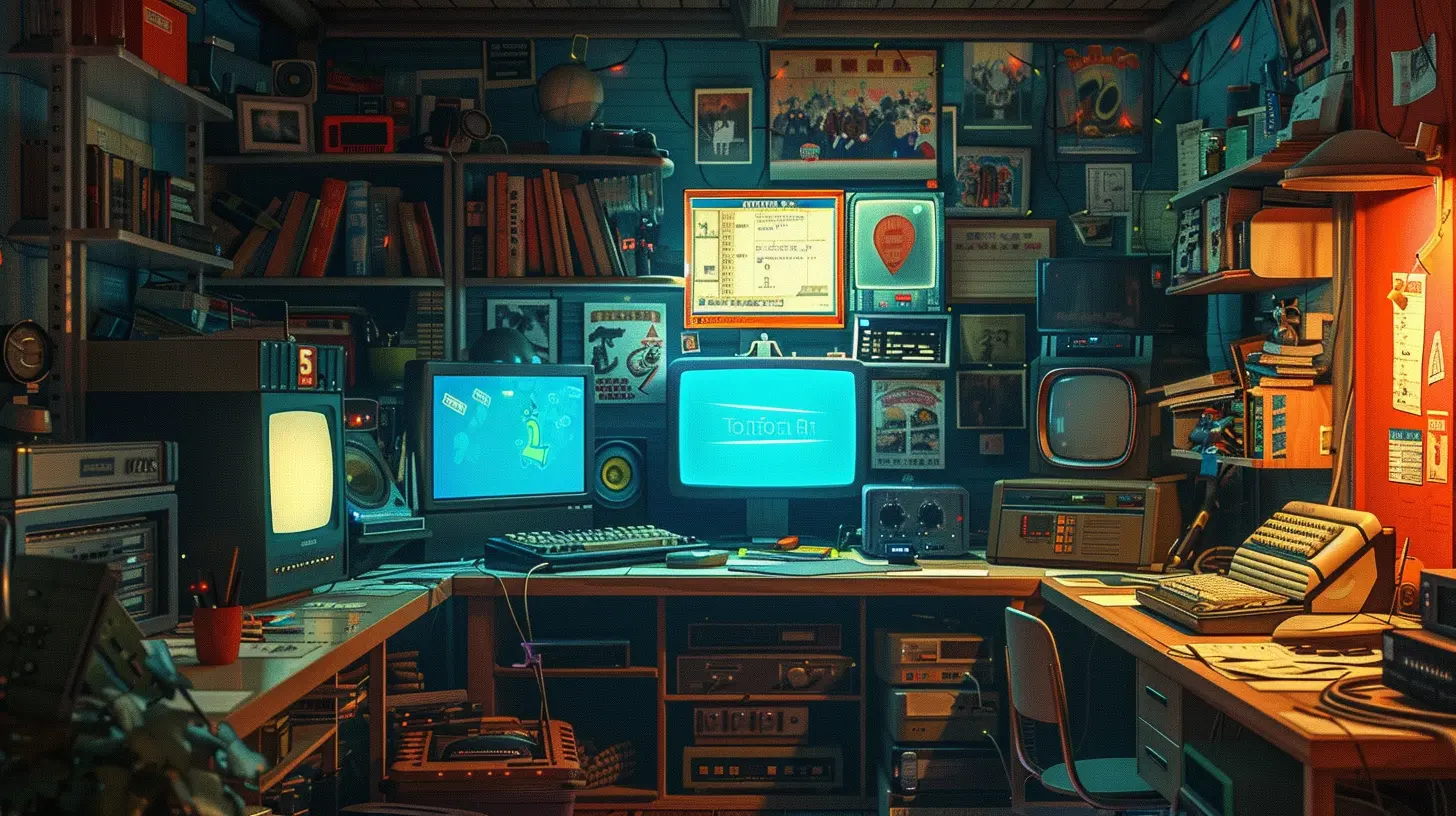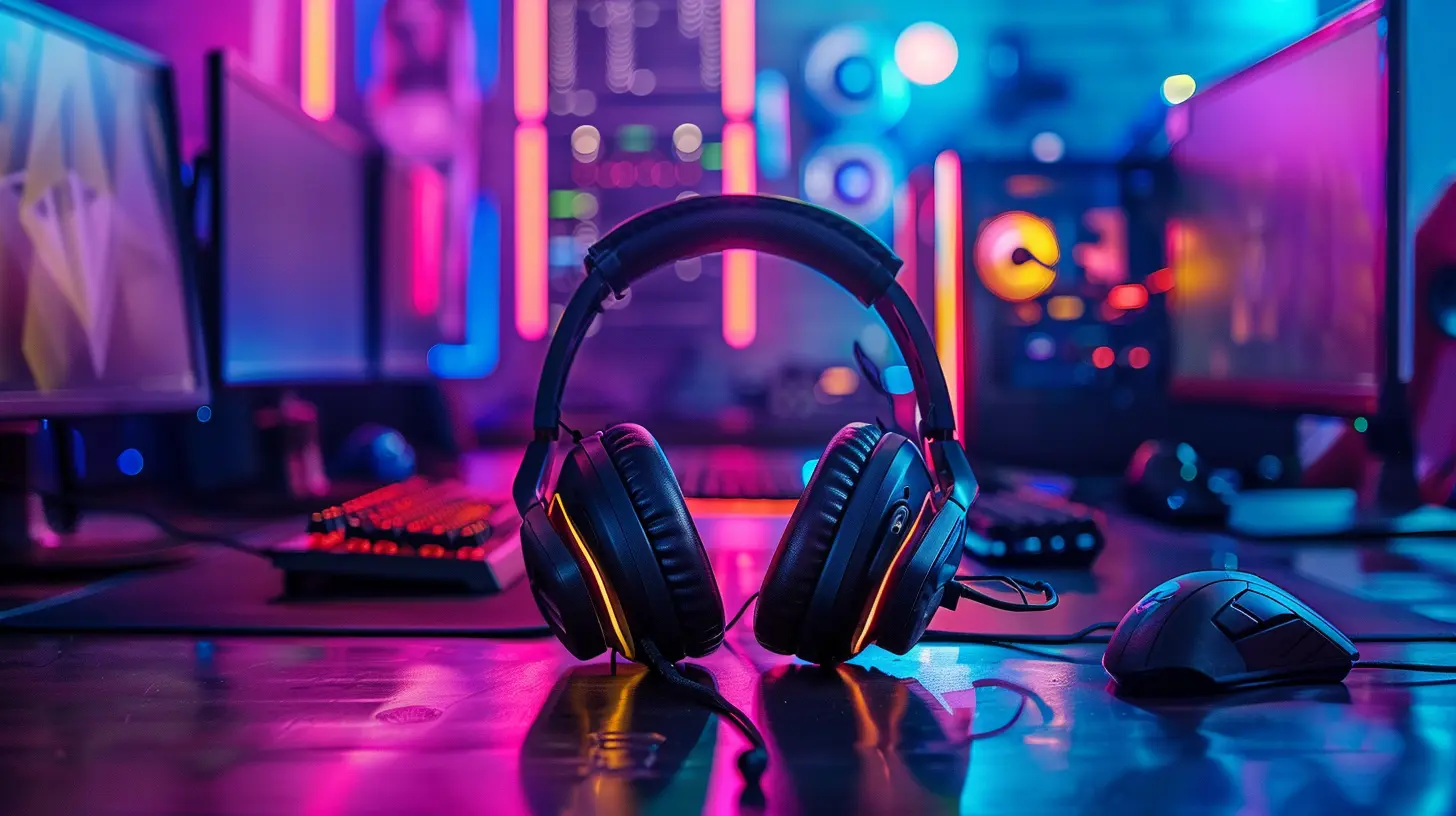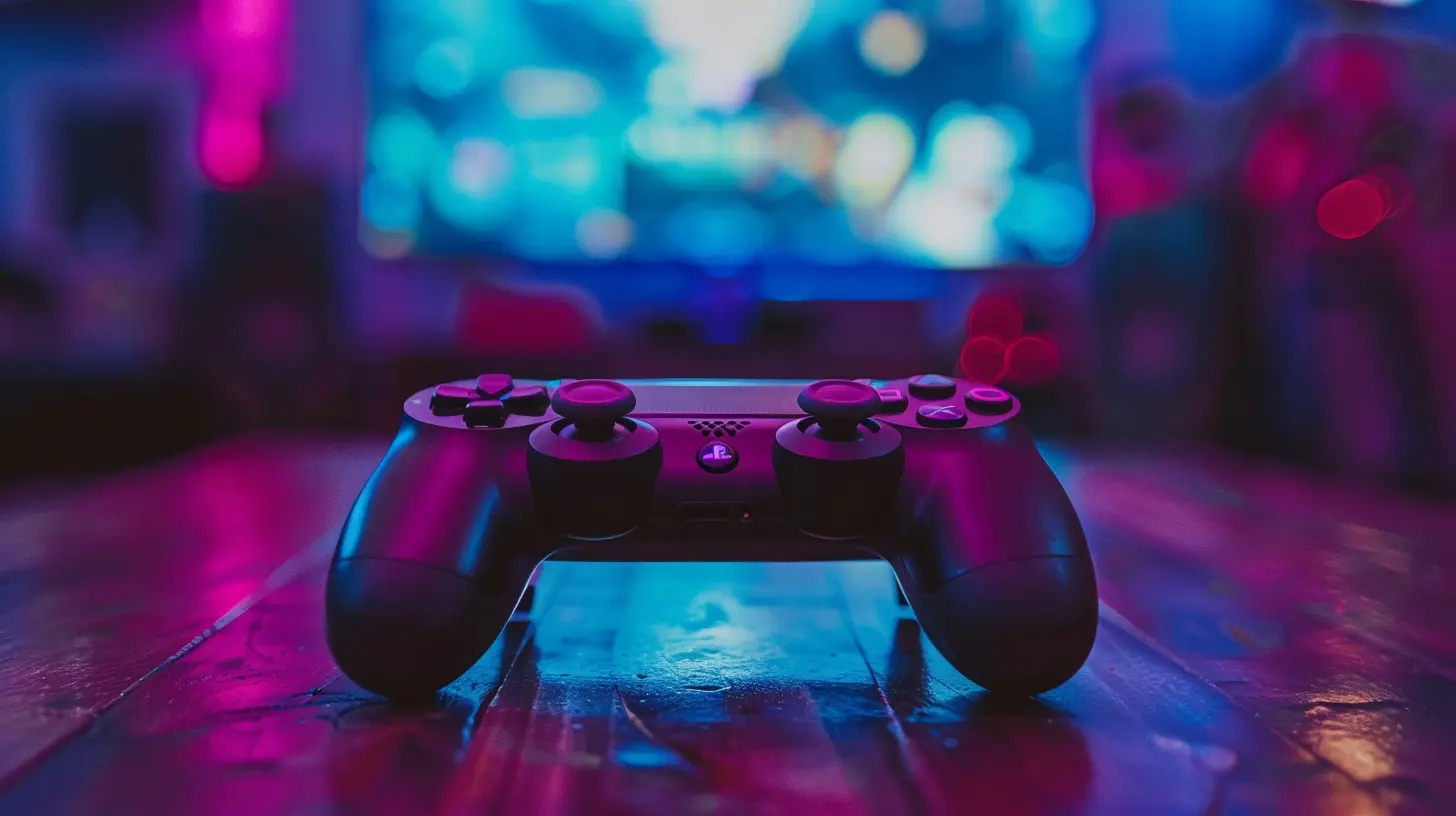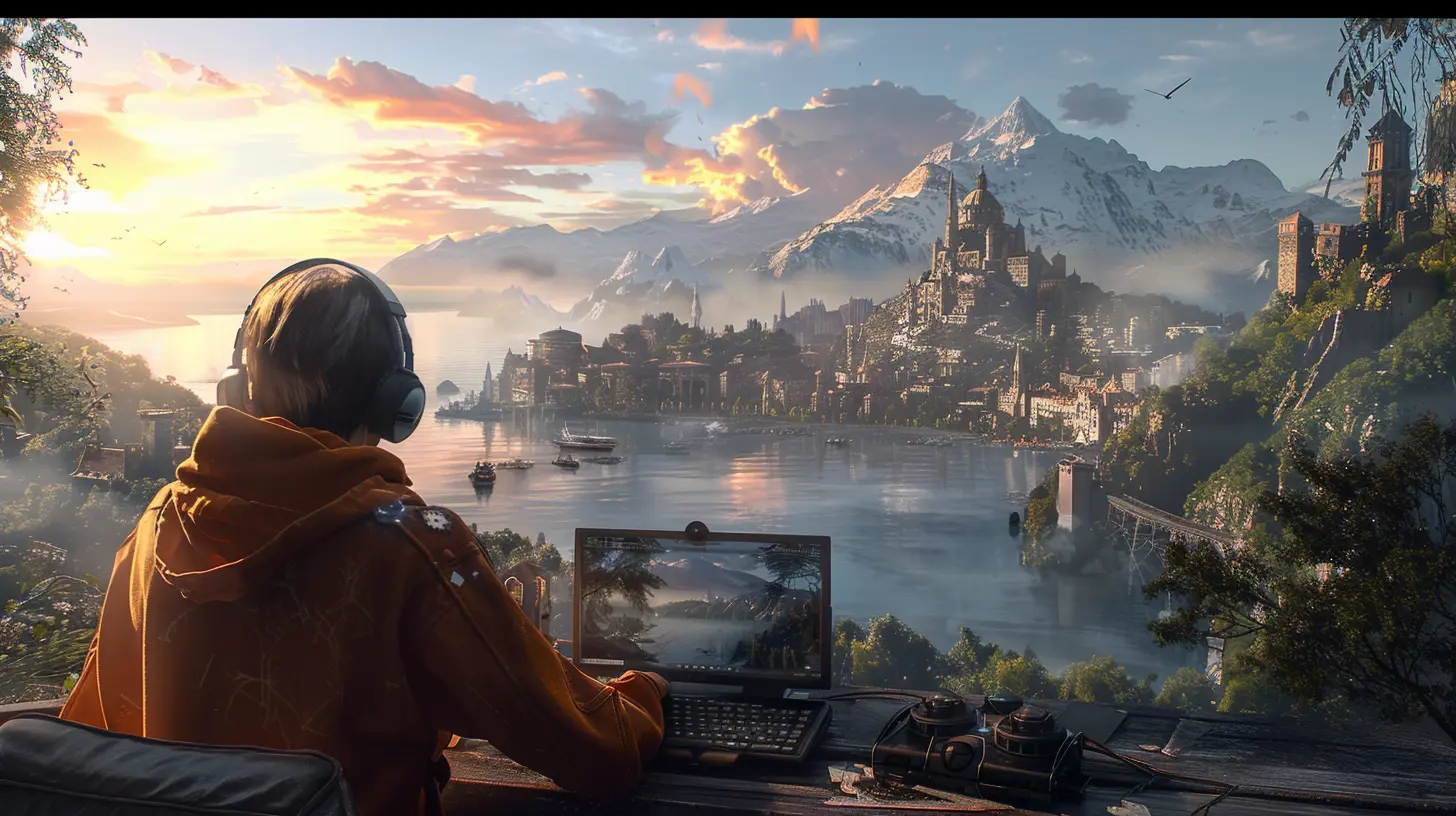What Makes a Great PC Game Soundtrack?
13 June 2025
Picture this: You’re playing your favorite PC game, lost deep in an epic battle or exploring an immersive world, and the soundtrack kicks in, sending shivers down your spine. Suddenly, the experience feels elevated—it’s not just a game anymore. It’s art. A truly great PC game soundtrack doesn’t just exist in the background like elevator music. Instead, it amplifies emotions, drives immersion, and creates unforgettable moments. But what makes a soundtrack go from good to legendary? Let’s dive into the beats (pun intended). 
Why Soundtracks Matter in PC Games
Before we start dissecting the anatomy of a phenomenal PC game soundtrack, let’s take a moment to appreciate why they’re so important. A soundtrack is like a game’s emotional narrator—it guides you, sets the mood, and tells a story without using words. Whether it’s the eerie hum in a horror game or the pulse-pounding beats in a high-octane shooter, music enhances how we feel during gameplay.Think about it: would you feel the same sense of urgency in a boss battle without the dramatic orchestral swell? Probably not. A great soundtrack becomes part of the game’s identity—it sticks with you long after you've logged off, like that catchy song you can’t get out of your head. 
The Ingredients of a Great PC Game Soundtrack
Just like your favorite dish, a great soundtrack is all about the right mix of ingredients. But what are those ingredients exactly? Let’s break it down.1. Emotional Impact
The best game soundtracks are the ones that make you feel something. Whether it’s joy, fear, adrenaline, or pure nostalgia, music has a way of striking emotional chords. A perfect example? The Elder Scrolls V: Skyrim. The iconic theme, “Dragonborn,” instantly gives you a sense of adventure and grandeur.Similarly, Ori and the Blind Forest tugs at your heartstrings with its beautifully melancholic melodies. The music makes you care—about the story, the world, and the characters. Without that emotional connection, even the most technically impressive soundtrack might fall flat.
2. Immersion
Let’s be real here: nobody wants to feel like they’re “just playing a game.” We crave immersion. A killer soundtrack blends seamlessly with the world, making you forget where you are and pulling you deeper into the game’s universe.Take Red Dead Redemption 2 for instance. The music feels like it belongs to the Wild West—it’s gritty, soulful, and authentic. You don’t just play as Arthur Morgan; you become him, thanks in part to how well the soundtrack complements the game’s setting.
3. Dynamic Adaptation
Game soundtracks aren’t static. They need to adapt to what’s happening on-screen in real-time. Imagine you’re sneaking through the shadows in a stealth game, heart pounding with suspense. As you’re about to make your move, the intensity of the music changes to match the tension of the moment.Dynamic soundtracks, like the ones in DOOM (2016), achieve this beautifully. Mick Gordon’s heavy metal score doesn’t just play in the background—it roars to life during combat, responding to your actions and making you feel like an unstoppable force.
4. Memorability
Here’s a question: can you hum the theme from Super Mario Bros.? Of course, you can! That’s the power of a memorable soundtrack. Even years later, you associate those tunes with the game.Memorability often comes down to catchy melodies, repetitive motifs, or unique sound design. The Legend of Zelda series nails this with its iconic themes, which have been etched into gaming history.
5. Diversity in Style and Composition
No two PC games are alike, so their soundtracks shouldn’t be either. A great soundtrack matches the game’s genre, tone, and pacing. A high-energy racing game like Forza Horizon thrives on upbeat electronic tracks, while a narrative-driven indie game like Journey employs hauntingly minimalist compositions.A perfect composer doesn’t just write music—they understand the game’s soul and bring it to life through sound. Whether it’s orchestral, synth-wave, lo-fi, or heavy metal, the music style has to fit like a glove. 
Genres That Excel at Soundtracks
Some genres just hit different when it comes to music. Let’s give a shout-out to a few that consistently deliver incredible soundtracks.RPGs (Role-Playing Games)
From the sweeping landscapes of The Witcher 3: Wild Hunt to the enchanting tunes of Final Fantasy VII, RPGs excel at creating rich, emotional soundscapes. Their soundtracks are often sprawling and epic, designed to match the hours you’ll spend exploring vast worlds.Shooters
Shooters like DOOM and Halo use music to keep your adrenaline pumping. Fast tempos and frenetic rhythms make every firefight feel like a cinematic experience.Horror
A good horror soundtrack is more than just creepy noises—it’s psychological warfare. Games like Silent Hill 2 use eerie, unconventional music to make you feel uneasy even when nothing scary is happening.Indie Games
Indie developers often bring fresh ideas to the table, and that includes music. Titles like Hollow Knight and Celeste prove that you don’t need AAA budgets to create unforgettable soundtracks.
The Role of Technology in Modern Game Soundtracks
Let’s get a little geeky for a second—game soundtracks have come a long way, thanks to advances in technology. Back in the day, composers were limited to simple 8-bit chiptunes. That’s why retro games like Tetris and Mega Man have those sharp, simplistic sounds.Today, composers have entire orchestras, virtual instruments, and cutting-edge recording techniques at their disposal. They can craft soundtracks that rival movie scores in their complexity and quality. Games like Cyberpunk 2077 and The Last of Us Part II showcase this evolution, blending traditional instruments with digital sounds to create something truly unique.
And don’t even get me started on spatial audio. With surround sound or 3D audio setups, players can hear music in a way that feels... well, three-dimensional. It’s like being wrapped in the sound.
Why Some Soundtracks Fall Flat
Okay, so we’ve talked about the greatness, but let’s address the elephant in the room—not all game soundtracks hit the mark. Sometimes, they’re too repetitive, lack personality, or just don’t vibe with the game.Ever played a game where the music gets so annoying that you mute it after 10 minutes? Yeah, me too. A bad soundtrack can actually pull you out of the experience instead of drawing you in. It’s like trying to eat a gourmet meal while someone blasts a car alarm in the background.
Composers Who Changed the Game (Pun Intended)
We can’t talk about great soundtracks without giving props to the composers. These are the musical geniuses behind some of the most iconic gaming scores.- Nobuo Uematsu (Final Fantasy series): Known as the “Beethoven of video games,” Uematsu’s work has defined the RPG genre.
- Jeremy Soule (The Elder Scrolls series): His lush, orchestral scores have become synonymous with fantasy gaming.
- Koji Kondo (Mario & Zelda series): The OG of catchy, unforgettable game music.
- Mick Gordon (DOOM): Heavy metal meets gaming—it doesn’t get cooler than this.
The Connection Between Player and Music
Here’s the thing about video game soundtracks: they’re personal. You don’t just hear them—you experience them. They become part of your journey as a player, enhancing every triumph, failure, and discovery.Ever heard a song from a game you haven’t played in years and instantly felt a wave of nostalgia? That’s the magic of a great soundtrack. It’s not just about the notes—it’s about the memories they evoke.
Wrapping It Up
So, what makes a great PC game soundtrack? It’s a mix of emotional impact, immersion, adaptability, memorability, and artistic vision. A great soundtrack doesn’t just sit in the background; it weaves itself into the game’s DNA, enhancing every moment and leaving a lasting impression.Next time you boot up your favorite PC game, take a moment to really listen to the music. Chances are, it’s doing a lot more for your experience than you realize.
all images in this post were generated using AI tools
Category:
Pc GamesAuthor:

Audrey McGhee
Discussion
rate this article
2 comments
Rhea McCarron
Great soundtracks elevate gaming! They create immersive experiences and unforgettable moments.
June 18, 2025 at 3:54 PM

Audrey McGhee
Absolutely! A captivating soundtrack can transform gameplay, enhancing emotional depth and creating lasting memories.
Meagan McQuillen
A great PC game soundtrack enhances immersion, complements gameplay, and evokes emotions, creating a memorable and cohesive gaming experience.
June 15, 2025 at 3:09 AM

Audrey McGhee
Absolutely! A great PC game soundtrack is essential for deepening immersion and enhancing the overall emotional journey, making gameplay truly unforgettable.


